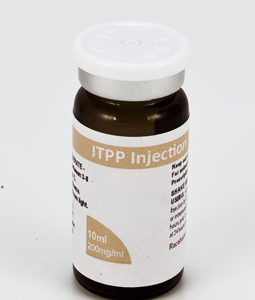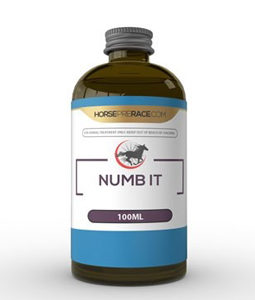Description
Buy Synedem Injeaction Online from our site
Anti-edematose, diuretic, anti-inflammatory.
Formula:
Every 100 ml, it contains:
Fursemide 5 g
Dexamethasone (21 phosphate) 0.2 g
Formulation Agents e.q.
Administration and Dosages For Synedem Injeaction:
Intramuscular or intravenous slow injection.
Dosage:
Large animals: 10-25 ml per 12 o 24 hours, according to professional criteria.
Small animals: 0.25-0.5 ml every 5 k.l.w. per day, according to professional criteria.
Presentation:
bottle 25 ml. (each Box comes with 12 bottles)
Usage Of Synedem Injeaction
The term “Synedem” appears to be a brand name or a specific pharmaceutical product, but I don’t have specific information about it in my training data up to January 2022. However, I can provide some general information about the components you mentioned:
- Furosemide: Furosemide is a diuretic medication that is used to treat conditions where the body retains excess fluid, such as congestive heart failure, kidney problems, and high blood pressure. It works by increasing urine production, which helps the body get rid of excess salt and water.
- Dexamethasone: Dexamethasone is a corticosteroid medication that has anti-inflammatory and immunosuppressive properties. It is used to reduce inflammation in various medical conditions, including allergies, asthma, autoimmune diseases, and certain inflammatory disorders.
An injectable solution containing both furosemide and dexamethasone might be used in certain medical situations to address edema (fluid retention), inflammation, and other related conditions. The combination of these two drugs could be prescribed by a healthcare professional for specific therapeutic purposes. Please note that the use of these medications should be done under the guidance of a healthcare provider, as they can have potential side effects and interactions with other drugs.
If you have a specific question or need information about a particular product named “Synedem,” I recommend consulting a medical professional or a pharmacist who can provide more detailed information and guidance based on the most current medical knowledge.
It seems like you’ve provided information about a medication called “SYNEDEM,” which appears to be a pharmaceutical product. SYNEDEM appears to be a combination medication with anti-edematose (anti-edema), diuretic, and anti-inflammatory properties. The formula you’ve listed includes two active ingredients, furosemide and dexamethasone.
Here’s some information about these two components:
- Furosemide: Furosemide is a diuretic medication that is used to treat conditions where the body retains too much salt and water. It works by increasing urine production and removing excess fluid from the body. It is commonly prescribed for conditions such as edema (fluid retention) and high blood pressure.
- Dexamethasone (21 phosphate): Dexamethasone is a corticosteroid medication with anti-inflammatory and immunosuppressive properties. It is used to reduce inflammation and manage various conditions, including allergic reactions, autoimmune disorders, and inflammatory conditions.
The combination of these two active ingredients suggests that SYNEDEM may be used to treat conditions involving edema and inflammation. However, it’s essential to use this medication only under the guidance and prescription of a qualified healthcare professional. They can provide you with the appropriate dosage and instructions for use, as well as advise on potential side effects and any contraindications or interactions with other medications.
Caution for Synedem Injeaction
Please note that medication formulations and brand names may vary by region, and it’s crucial to consult with a healthcare provider or pharmacist for specific information about SYNEDEM and its use in your area. Additionally, my knowledge is based on information available up to January 2022, and there may have been developments or changes in medical products and guidelines since that time.
Dexamethasone is a corticosteroid medication commonly used in veterinary medicine to treat a variety of conditions in animals. It is a synthetic glucocorticoid, which means it mimics the action of natural corticosteroids produced by the adrenal glands. Dexamethasone has potent anti-inflammatory, immunosuppressive, and anti-allergic properties, making it valuable in managing a wide range of medical conditions in animals. Here are some common uses of dexamethasone in veterinary medicine:
- Inflammatory Conditions: Dexamethasone is often prescribed to reduce inflammation in various conditions, such as arthritis, skin allergies, and inflammatory bowel disease.
- Autoimmune Disorders: It can be used to suppress the immune system’s response in cases of autoimmune diseases like lupus or immune-mediated hemolytic anemia (IMHA).
- Allergies: Dexamethasone can help manage severe allergic reactions and itching in pets.
- Respiratory Conditions: In cases of severe respiratory issues, such as asthma or severe bronchitis, dexamethasone can be used to reduce inflammation and improve breathing.
- Shock: Dexamethasone may be administered in cases of shock to help stabilize the animal’s cardiovascular system and reduce inflammation associated with shock.
- Cancer Treatment: It is sometimes used as part of chemotherapy protocols to manage side effects or to shrink certain types of tumors.
- Addison’s Disease: Dexamethasone can be used in the management of Addison’s disease (hypoadrenocorticism) by replacing the lacking glucocorticoids.
- Nausea and Vomiting: In cases of severe nausea and vomiting, dexamethasone can be used to help control these symptoms.
- Organ Transplants: Dexamethasone is sometimes used to suppress the immune system during organ transplant procedures in animals.
It’s important to note that dexamethasone is a potent medication with potential side effects, especially when used for extended periods. These side effects can include increased thirst and urination, weight gain, muscle loss, and immune system suppression. Veterinary treatment involving dexamethasone should be carefully monitored, and the medication should only be administered under the guidance of a licensed veterinarian.
The specific dosage and duration of treatment with dexamethasone will depend on the animal’s condition, size, and overall health. Any changes in the treatment plan or concerns about side effects should be discussed with a veterinarian. Additionally, abrupt discontinuation of dexamethasone can lead to an adrenal crisis, so it should be tapered off gradually when discontinuing the medication.





Reviews
There are no reviews yet.